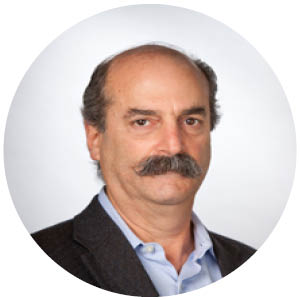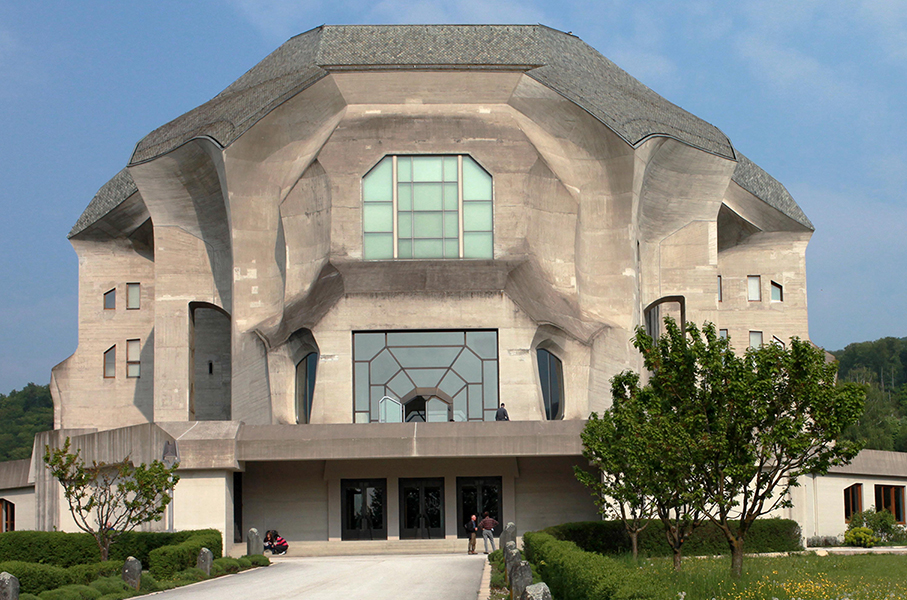A new General Secretary for the Anthroposophical Society in America
Jan 3 2017
 In October, John Bloom, RSF’s vice president of organizational culture, was appointed the new General Secretary of the Anthroposophical Society in America. While he remains full-time at RSF, he will serve a four-year term as a leader of the Society’s 3,500 members across the United States. He will also travel twice a year to the Goetheanum in Dornach, Switzerland, the international center for anthroposophy, to represent the U.S. at the meetings of General Secretaries from societies around the world. Three months into his tenure, Bloom is here interviewed by Enrique Perez, marketing manager, about the work of the Society and his vision for its next stages of its development.
In October, John Bloom, RSF’s vice president of organizational culture, was appointed the new General Secretary of the Anthroposophical Society in America. While he remains full-time at RSF, he will serve a four-year term as a leader of the Society’s 3,500 members across the United States. He will also travel twice a year to the Goetheanum in Dornach, Switzerland, the international center for anthroposophy, to represent the U.S. at the meetings of General Secretaries from societies around the world. Three months into his tenure, Bloom is here interviewed by Enrique Perez, marketing manager, about the work of the Society and his vision for its next stages of its development.
Enrique Perez: What is the role of the general secretary?
John Bloom: The General Secretary serves as a spokesperson for the Anthroposophical Society in America. Along with staff and General Council, I will help set a general direction for the Society. There are no day-to-day operational responsibilities. Rather, the General Secretary is a listener and sensor of what is alive in the movement of people who are dedicated to Rudolf Steiner’s work in all its philosophical and practical aspects.
The General Secretary is also a connector between many of the different activities and parts of the life of the society. Within the movement, there is Waldorf Education, Biodynamic agriculture, Anthroposophical medicine, and Camphill communities, among numerous other manifestations. It’s important that the General Secretary, on behalf of the Society, foster an awareness of Rudolf Steiner’s work throughout all of those movements, even as they serve increasingly diverse groups of people.
Perez: You mentioned listening. What yearnings have you heard from members of the Society?
Bloom: I don’t know that there is a singular wish. I have heard a longing to meet and to be together in a new way, and to appreciate the endowment of ideas that Rudolf Steiner left. There’s also been a desire to begin answering the question of what Rudolf Steiner’s work, which has been around now for over 100 years, has meant for society. Has education been changed? Has agriculture been changed? Has medicine been changed? In other words, how have Steiner’s ideas been of service to the broader culture and world?
Perez: You represent the Society internationally. Describe what that looks like.
Bloom: Part of my role is to represent the United States as a member of the circle of General Secretaries from around the world. I report on and carry the life of the U.S. Society in those gatherings, and also bring research, innovations, insights, and activities from around the world back to the U.S. In some ways, I also represent what is happening at the Goetheanum to the U.S. membership.
Perez: Where do you see the most energy right now with research?
Bloom: Within the Society, there are specific fields of research connected to professions—such as agriculture, medicine, education, social science. There are numerous others. In medicine, the cancer research is well known in Europe. And I would say that the social science section has been very active, especially given the state of the world right now. Social science is concerned with the intersection of economics, politics, and culture. For example, how do we recognize that each individual has his or her own path and yet has to co-exist in agreements with others? What are the approaches to navigating that tension? Add economic life to that, and we see how interdependent we are. There is a lot of confusion in this complexity and Rudolf Steiner pointed to ways of working through that.
There’s also quite a lot of research going on in the education field as well. It’s interesting because much of the scientific brain research that is emerging now is confirming what Rudolf Steiner was talking about in human development nearly 100 years ago. He was getting at that knowledge through experience teaching children, direct relationship, and observation. We are seeing science taking hold of what Steiner intuited from his work at the time.

The Goetheanum in Dornach, Switzerland. Photo by Charlotte Fischer.
Perez: The Society’s 2017 theme is “World Transformation and Self-Knowledge in the Face of Evil.” What’s the purpose of the annual theme?
Bloom: The purpose of the annual theme is to set a very high-level focus for research, study, and practical work by societies, branches, and groups. This year’s theme recognizes evil as a reality in today’s world. Evil doesn’t happen by accident. There’s a certain intention behind it, which one could say is to block or overturn the progress we’re trying to make in human consciousness. The notion of transforming evil for good is an important concept, but it’s difficult work. The challenge is that we tend to live in a Western duality of good and bad. In truth, we are always standing in a place where both are present. Part of the discipline of self-knowledge is to recognize this in ourselves and where they are at work in the world.
Perez: Could you tell me about the Anthroposophical Prison Outreach program?
Bloom: It started when a group of people connected with the Society recognized there were people in prison who genuinely longed to develop and transform themselves. The program took various forms from there, making Steiner’s writings and books as well as study groups available to incarcerated individuals. The program is a way of acknowledging people’s deep humanity in a place that doesn’t often lend itself to that. It’s very powerful work. They do a newsletter in which they often publish things that some of the incarcerated individuals have written or drawn.
Perez: The U.S. has taken an isolationist turn in its political climate. Do you agree with that statement? If so, how would you square that sentiment with Steiner’s efforts towards associative economics?
Bloom: The isolationist point of view, if applied to economics, is contrary to what Rudolf Steiner described as a one-world economy. In 1922, he gave a series of lectures called World Economy that stated that economies tend to be grounded in ecological regions rather than political boundaries. Political borders make sense to some degree for laws and governance, and to some degree language. From an economic standpoint, political boundaries make no sense whatsoever because we can’t go someplace other than the Earth to get the natural resources we need. We know that rivers and mountain ranges, whole eco-systems move through multiple countries. When we extract mineral ores from one place and move them around the world, it has consequences on the whole of the earth.
Perez: Do you have a goal that you hope to achieve in your tenure?
Bloom: Yes. First and foremost, I want more people to understand and benefit from the gifts that Rudolf Steiner brought to the Western world. Second, I want for there to be greater knowledge around the sacredness of every human being and relationship. My hope is to cultivate a quality of sacred conversation, in which we remember how to really listen and to speak consciously. Communication has become so trivialized by the media. For our well-being, we need to rediscover what is human.
Perez: What would you say to someone who’s interested in becoming a member of the Society?
Bloom: Joining the Society requires nothing more than an interest in Rudolf Steiner’s work. Then I would ask, “What in particular got you interested? What are you hoping or longing for yourself and for others?” The Society is a home for people who are on a journey of self-knowledge and want to do meaningful service in the world. The Society is a spirit-centered community for those who recognize there’s a much greater dimension to life than the material and want to explore that recognition in the company of others in order to understand and meet the challenges of our time.